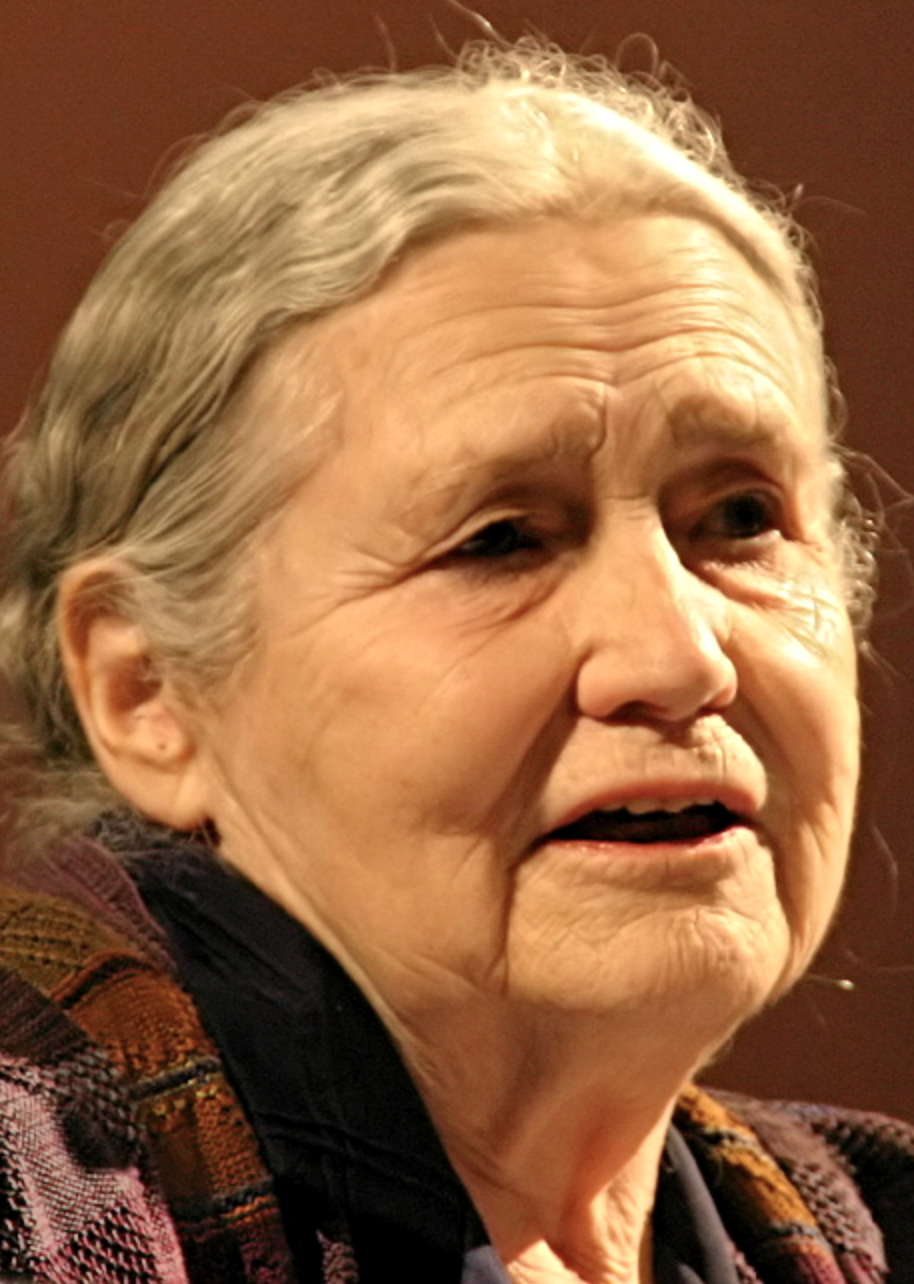On this date in 1919, novelist Doris Lessing (née Doris May Tayler) was born in Persia (now Iran) to British parents. She moved with them to the British colony of Southern Rhodesia (now Zimbabwe) in 1925. Her childhood, a mixture of idyllic and difficult, ended prematurely when she was sent to a convent school, where she was terrified by the nuns and their tales of sin and damnation, according to a Reader’s Guide to The Golden Notebook and Under My Skin (1995).
A temporary attraction to Catholic ritual was dispelled when her mother described the horrors of the Inquisition, at which point Lessing “quit religion,” according to literary critic John Leonard. Her formal education ended when she dropped out of an all-girls high school at age 13. She left home at 15, married Frank Wisdom at 19 and had two children before divorcing in 1943. She then married Gottfried Lessing and had another son before divorcing in 1949. She never married again.
Her first novel, The Grass is Singing, was published in 1949, the year she moved to London with her son. Her famed “Children of Violence” series (1951-59) features her heroine, Martha Quest, in a series of four coming-of-age novels. In 1956 she was named a “prohibited alien” by Southern Rhodesia and South Africa. The Golden Notebook (1962), with heroine Anna Wulf, was hailed as an early feminist classic. Her autobiographies were published in two volumes, Under My Skin, and Walking in the Shade (1997). She also wrote a series of science fiction books that were panned by some critics.
In analyzing a human propensity to dogmatism, including her own previous communist conversion, Lessing said, “There are certain types of people who are political out of a kind of religious reason. I think it’s fairly common among socialists: They are, in fact, God-seekers, looking for the kingdom of God on earth. … If you don’t believe in heaven, then you believe in socialism.” (New York Times, July 25, 1982.)
She was awarded the 2007 Nobel Prize for Literature at age 88, the oldest person at the time to ever receive the prize. The Swedish Academy called her “that epicist of the female experience, who with scepticism, fire and visionary power has subjected a divided civilisation to scrutiny.” (D. 2013)
PHOTO: Lessing at a 2006 literary festival in Cologne, Germany; photo (cropped) by Elke Wetzig under CC 3.0.

